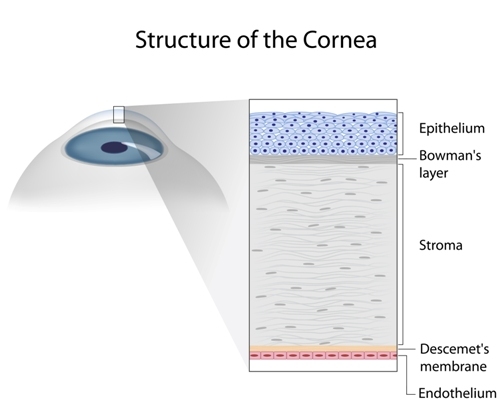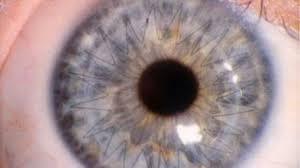Have you recently found out you may need a cornea transplant? Although it sounds scary, it doesn’t have to be.
Corneal transplants may be more common than you think. Next to blood transfusions, they’re the most commonly performed procedure using donor material. Corneal transplants can often restore a patient’s vision, as the cornea is a vital part of the eye that’s necessary to be able to see.
Keep reading to find out if you need a corneal transplant and more about the different kinds of corneal transplants available.
What is the Cornea?

Your cornea is the clear, frontmost part of your eye. Light refracts through the cornea, focusing on the back of your eye so you can see that light as clear images.
When the cornea is misshapen in any way, it causes visual problems. Tiny irregularities in the cornea cause refractive errors.
However, you can correct refractive errors using visual aids like glasses and contact lenses. More severe irregularities and damage to the cornea can cause vision loss that visual aids or other treatments cannot correct. In such cases, a corneal transplant may be medically necessary to restore a patient’s vision.
What is a Corneal Transplant?
A corneal transplant, also called a keratoplasty, is a surgical procedure. During a corneal transplant, the damaged corneal tissue is removed and replaced with tissue from a donor.
The entirety of the cornea rarely needs to be replaced. Instead, a section of the cornea that’s become damaged is carefully excised and replaced.
Often, not even all the layers of the cornea need to be removed. Different kinds of keratoplasties remove different layers of the cornea.
What kind of keratoplasty you may need to undergo depends on where the damage is located in the cornea.
Learn More About Corneal Transplants
Reasons for Undergoing a Corneal Transplant
There are several reasons you may need a corneal transplant. Any extensive damage to the cornea that you cannot otherwise repair and causes significant vision loss usually requires a corneal transplant to restore your vision and ability to see.
Damage to the cornea can be done by injury (either from previous eye surgery or some form of accident), infection, or disease. Common diseases that may necessitate corneal transplants are:
- Corneal dystrophy
- Fuchs’ dystrophy
- Keratoconus
These progressive conditions can damage the cornea. You may be able to treat these in their early stages, allowing the progression of damage to be slowed down and stopped.
However, once these progressive eye conditions progress to a certain point, only a corneal transplant can restore vision loss. Injury, like a corneal abrasion, can also cause corneal damage.
Corneal abrasions can become infected and form corneal ulcers. These ulcers can lead to extensive corneal scarring, which can cause vision loss.
Corneal scarring can also result from eye surgery and other kinds of infection.
Types of Corneal Transplants

There is more than one kind of corneal transplant. Which one you need will depend on how much of your cornea you need to be removed. Some corneal transplants are less invasive than others.
Depending on what part of the cornea is damaged, not all layers need to be removed and replaced. Replacing fewer layers lowers the risk of rejection and requires less healing time.
However, sometimes, the damage to the cornea is extensive, and all layers need replacement.
To understand the difference between the different kinds of corneal transplants, you first need to know the layers of the cornea. There are several layers.
The outermost layer of the cornea is the epithelium. Under that is Bowman’s layer.
The thickest layer of the cornea, the stroma, is under Bowman’s layer. The stroma makes up most of the cornea.
Under the stroma is another thin layer called Descemet’s membrane. Descemet’s membrane is then followed by the endothelium, the innermost layer of the cornea.
Only a Penetrating Keratoplasty (PK) removes and replaces all the layers of the cornea.
Descemet’s Stripping Endothelial Keratoplasty (DSEK) removes cells from Descemet’s membrane and replaces them with healthy donor cells. This kind of corneal transplant is used when the cornea’s inner layers are the source of damage.
Descemet Membrane Endothelial Keratoplasty (DMEK) is similar to DSEK, but the tissue removed and replaced is even thinner. A DMEK corneal transplant is usually used when damage to the inner corneal layers isn’t as extensive.
IntraLase Enabled Keratoplasty (IEK) uses an Intralase excimer laser, similar to the excimer laser used for vision correction procedures like LASIK. The computerized laser precisely targets damaged tissue and tissue from the donor cornea.

Utilizing an excimer laser leads to a better match with donor tissue. This kind of corneal transplant is usually used to replace the damaged upper layers of the cornea down through part of the stroma.
Do You Need a Corneal Transplant?
Only an eye doctor like those at See Clearly Vision can tell you if you need a corneal transplant. But if you have significant vision loss from a corneal disease or injury, you should consider seeing your eye doctor for a potential keratoplasty.
Learn more about corneal transplants by requesting an appointment today at See Clearly Vision in McLean and Arlington, VA!



















